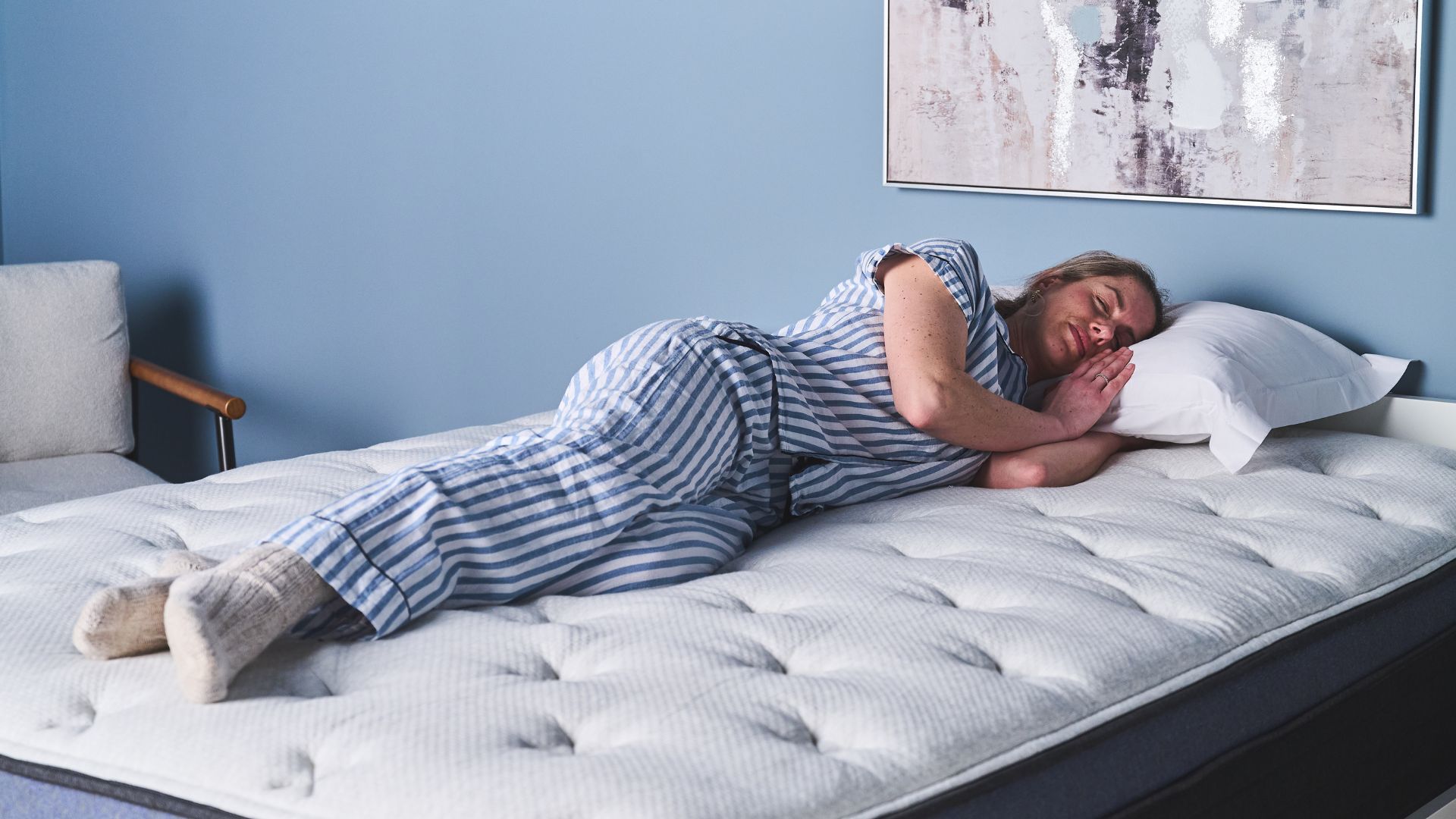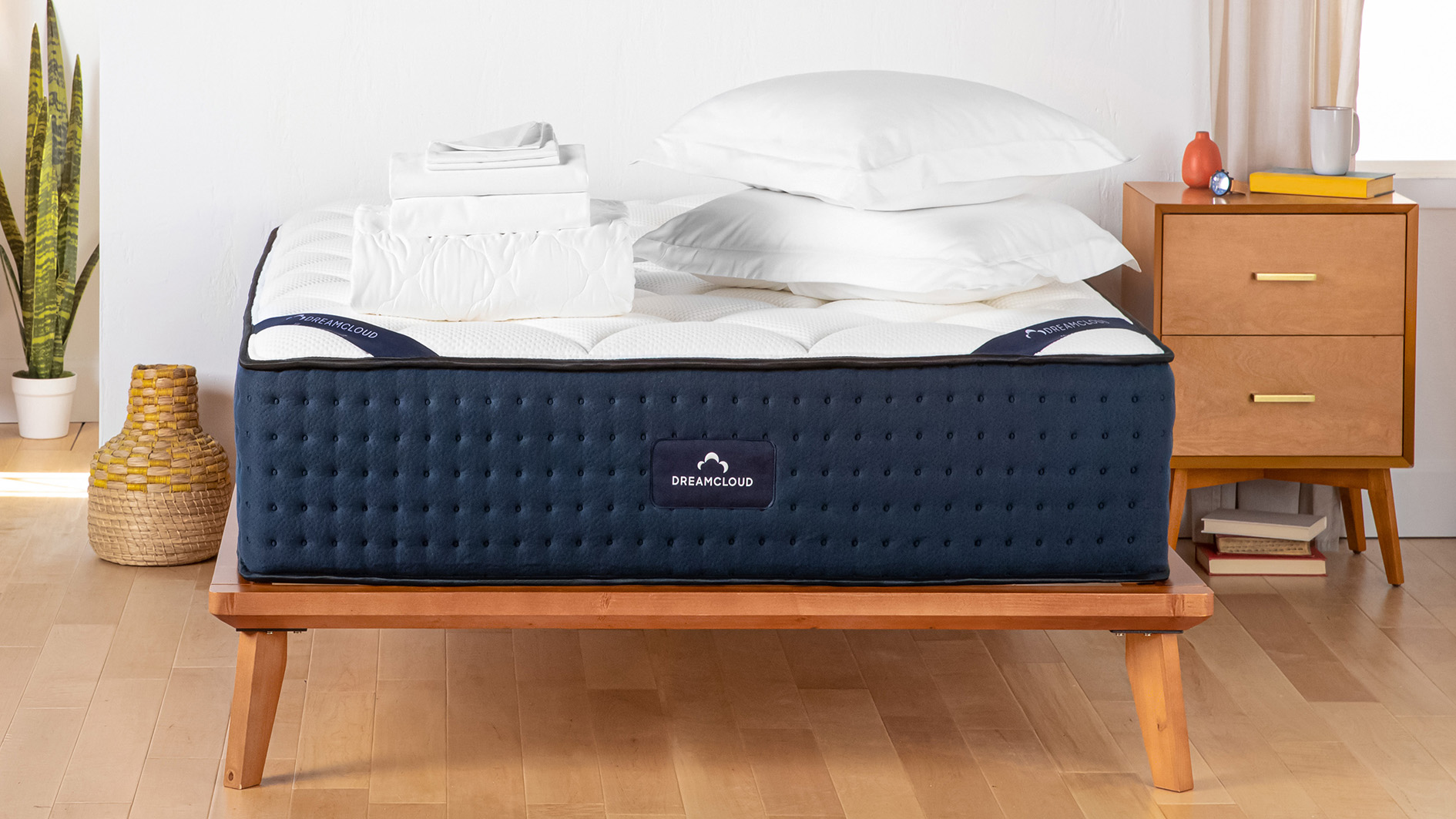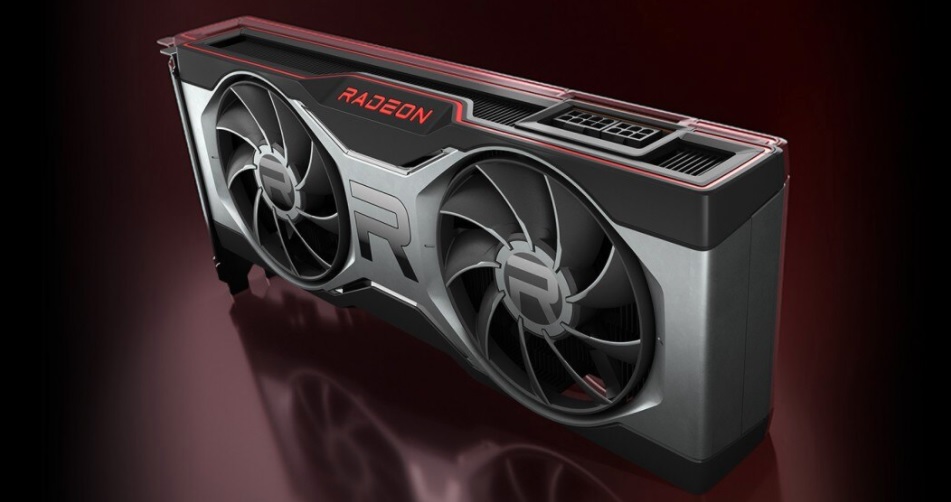8 key questions to ask yourself before buying a new mattress
It’s not just about your sleeping position

If you’ve noticed that you’re not sleeping comfortably on your existing mattress anymore, it might be time for an upgrade. But with so many mattresses to choose from, how do you know which one will be right for you?
Our best mattresses of 2025 guide features expert-tested mattresses that span sleep needs and budgets, but each bed won't suit everybody. To help narrow down your options, we’ve compiled a list of questions to ask before you invest in a new mattress.
Sleep position is important, but there's much more to choosing a mattress than that. So let's get started.
8 questions to ask before buying a new mattress
1. How much do I weigh?
Body weight plays a big part in choosing the right mattress. The more you weigh, the more support you’ll need to prevent your body from sinking too far into a mattress.
If you do sink in too far, you’ll lose this support structure and run the risk of your spine no longer being in alignment, which will cause aches and pain. If you weigh over 250 lbs, our round up of the best mattresses for heavy people will give you plenty of options.
Lighter sleepers, on the other hand, need more cushioning to prevent pressure building up. Deeper pressure relief will prevent aches and pains for these sleepers. Again, there are a variety of options for these sleepers – a good place to start is with the best pillow-top mattresses, which have a thicker layer of cushioning comfort on the top.
2. What position do I sleep in?

We’re all built differently and, whilst there’s no magic 'one size fits all’ with mattresses, there are some basic rules of thumb you can follow for sleeping positions.
Sign up to get the BEST of Tom's Guide direct to your inbox.
Get instant access to breaking news, the hottest reviews, great deals and helpful tips.
The best mattresses for side sleepers will offer plenty of cushioning around the pressure points of the shoulders, hips and knees. This allows side sleepers to sink into the mattress, preventing any pressure from building up.
By contrast, stomach sleepers require a much firmer mattress to keep the spine aligned and hips raised. The best mattresses for stomach sleepers will offer plenty of lumbar support to keep sleepers in the correct position.
Back sleepers often suit a wider range of mattresses, but a medium firm option is always a good place to start. The best hybrid mattresses are a great option, with the combination of coils and foam offering plenty of support and comfort. The added bounce from the coils also makes these beds a great choice for combination sleepers.
3. Do I have a budget?
Nearly all of us will have an idea of how much we’re willing to spend on a mattress. Whilst no one is suggesting that you have to invest in one of the best luxury mattresses, we’d always recommend spending as much as you can on your new bed. Sleep is vital to our wellbeing, and a cheap mattress could just lead to an uncomfortable and restless night’s sleep.
Today’s Labor Day sales also mean that you’ll have the chance to pick up a more expensive mattress that might normally be out of reach. So, it’s worth taking advantage of the drop in prices and investing in a mattress that will offer you plenty of support and comfort, along with a decent lifespan.
4. Do I have any aches and pains?

Of course, your aches and pains could be caused by sleeping on your existing old mattress. If it’s no longer providing adequate support and (or) has large amounts of sagging, it’s likely to be aggravating any niggles.
But if you have existing health conditions or are prone to back pain, then you’ll need to choose a mattress with a good balance of cushioning pressure relief, alongside firmer support for spinal alignment.
Many of the best mattresses for back pain fall into the medium firm category, as they’ll provide this balance. But if you’ve got lower back pain or weigh over 230lbs, you’ll most probably be better off with one of the best firm mattresses to add extra lumbar support.
5. Am I a hot sleeper?
If you’re prone to sleeping hot, choosing the wrong kind of mattress could lead to you waking up at night feeling uncomfortably warm and unable to get back off to sleep. Memory foam is notorious for trapping heat and although some companies add infusions to the foam, such as gel, charcoal and graphite, there’s some debate as to how well they work.
Instead, we’d recommend that hot sleepers invest in one of the best cooling mattresses, which use specialist cooling tech such as phase change materials (PCM) and GlacioTex covers. Natural materials such as organic cotton, wool, and latex are also good choices as they’re naturally breathable and don’t trap heat.
6. Do I share my bed with a restless sleeper?

If you (or your partner) are a restless sleeper, buying a new mattress with excellent motion isolation is a must. You need a bed that will absorb the motion immediately, preventing it from travelling across the bed and waking another sleeper up.
The best memory foam mattresses are a great choice for motion isolation as the layers of foam will absorb motion effectively. Mattresses with more sink-in support will also keep a sleeper in one position throughout the night.
Of course, this isn’t suitable for everyone so if you’re a combination sleeper or simply can’t bear the idea of a memory foam ‘hug’, look for a hybrid that still offers plenty of cushioning, such as the DreamCloud mattress.
7. Do I suffer from any allergies?

Bedrooms aren’t always great places for allergy sufferers. Dust, pollen, and pet dander can trigger wheezing, itching and even breathing problems. The first step is obviously to make sure that you keep your bedroom clean and frequently vacuumed. But to really help control allergies, investing in a hypoallergenic mattress is a sensible step.
The best organic mattresses are naturally hypoallergenic, using natural and organic materials such as latex, cotton and wool. They’re also free of toxins, chemicals, fibreglass and heavy metals, all of which are known to aggravate allergies.
8. Do I actually need a new mattress, or would a mattress topper be enough?
Before you invest in a new mattress, it’s worth considering if one of the best mattress toppers would be enough. If your mattress isn’t that old and simply has a few small dips, a bed topper could be more than enough to smooth the surface out.
A mattress topper can also help change the feel of a bed if it’s too hard or too soft or add a cooling element if you’re sleeping too warm. However, if your mattress is more than 10 years old, has damage or large amounts of sagging and dipping, you will need to invest in a new mattress rather than a topper.

Jo Plumridge is an experienced mattress reviewer with several years' experience covering all things mattresses and sleep, and who tests memory foam, hybrid and organic mattresses. What Jo doesn't know about a boxed mattress isn't worth knowing, so naturally we tasked her with producing a series of features for Tom's Guide looking at all aspects of mattresses, from how to pick between latex and memory foam (it's a tricky one), to the seven mistakes people make when buying a mattress for the first time. When testing the DreamCloud Luxury Hybrid for Tom's Guide, Jo said: "I loved the back support and pressure relief it offered. Plus, it looks far more expensive than it is." When she isn’t writing about sleep, Jo also writes extensively on interior design, home products and photography.
